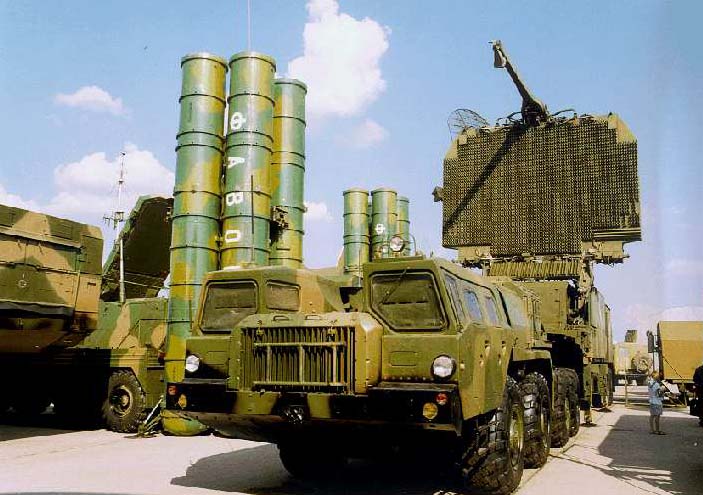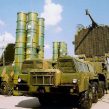
Pro-Iranian Lobby Attempts to Revive Russia’s Sale of S-300 Missiles to Iran
Publication: Eurasia Daily Monitor Volume: 9 Issue: 142
By:

This month, the government agency that oversees Russia’s arms exports and imports – the Federal Service on Military-Technical Cooperation (Federalnaya Sluzhba Voyenno-Tecknicheskogo Sotrudnichestva or FSVTS) – confirmed that Iran is suing Russia for damages to the tune of some $4 billion in the Court of Arbitration in Geneva for canceling in 2010 a contract to sell five divisions of the S-300 long-range antiaircraft missile system worth an estimated $800 million to $1 billion. According to the FSVTS, the contract to sell the S-300 was signed in 2007, and it was canceled after the UN Security Council approved on June 9, 2010 Resolution 1929 imposing sanctions on Iran, including a partial arms embargo, for continued uranium enrichment. Moscow approved Resolution 1929 and repaid Tehran a cash advance of $167 million received as prepay for the S-300, but did not pay out anything for damages. Tehran began litigation for damages in Geneva in April 2011, but there have been no hearings of the case yet (RIA Novosti, July 5).
By threatening exuberant compensation, Tehran hopes to blackmail Moscow into reconsidering its ban on selling S-300 missiles. This tactic seems to have been at least partially successful. Last week, the Kommersant daily quoted an unnamed government source that the Russian legal position in the coming litigation is weak, “the situation is serious” and “we fear that Russia may face a gigantic fine.” According to the director of the Center for Modern Iranian Research (a pro-Iranian think tank in Moscow), Rajab Safarov, Tehran hopes to provide Moscow with an excuse to present to the West: “Russia must fulfill the S-300 contract, or money will be lost.” The president of the pro-Kremlin PIR-Center think tank, Vladimir Orlov, believes Moscow made a serious mistake in canceling the S-300 deal under the pretext of sanctions: “The possible resumption of the S-300 contract has been and is being discussed in Russia; but if it will be resumed, the Iranian litigation will not be a factor.” According to Orlov, supplying Iran with S-300 missiles could “improve the situation in the region” by deterring the foes of Tehran. UN Resolution 1929 bans the sale to Iran of any “guided or unguided missiles” with a range over 25 kilometers. The S-300 – a potent long-range antiaircraft missile system – is not specifically mentioned in the UN resolution, and this is reported to be Tehran’s main argument in asking the Court of Arbitration in Geneva to rule the cancellation of the S-300 contract illegal (Kommersant, July 18).
In the summer of 2010, the discussion of the S-300 deal with Iran caused a public clash of government departments in Moscow. The then chairman of the Duma International Relations Committee Konstantin Kosachev announced: “The S-300 is a defensive system and is not forbidden by the [1929 UN] resolution.” The then official spokesman of the Foreign Ministry Andrei Nesterenko publicly backed Kosachev (Interfax, ITAR-TASS, June 10, 2010). The FSVTS in turn declared: “Our analysis of the 1929 resolution indicates the export of the S-300 is affected” (RIA Novosti, June 11, 2010). On September 22, 2010, President Dmitry Medvedev signed an ukaz (order) incorporating the UN Resolution 1929 sanctions against Iran into Russian law, including a ban on selling S-300s. At the end of December 2010, Nesterenko was replaced as the Foreign Ministry spokesman. Medvedev, reportedly demanded his resignation because of the S-300 spar and Nesterenko’s statement about the legality of the S-300 contract (Kommersant, January 11, 2011).
The S-300 antiaircraft missile system was initially designed as a double-use weapon, intended to intercept flying objects, including cruise and ballistic missiles, or hit targets on land and sea. All modifications of the S-300 have the capability to attack ground (or sea) targets with a 145-kilogram warhead producing a deadly rain of high-energy shrapnel. The S-300 is reported to be able to perform precision hits on targets in a 120-km range, but is also capable of flying much further – up to 400 km, as demonstrated in tests in the 1980s (https://naviny.by/rubrics/politic/2011/10/17/ic_articles_112_175478/). The S-300 was also designed to carry a nuclear warhead to knock out high value targets. Such warheads were deployed during the Cold War, and the same missiles were also capable of performing nuclear attacks of ground and sea targets. In recent years, the Russian military has been constantly using S-300 missiles to attack designated ground targets during military exercises to be ready to do the same during real conflicts. While practicing massive military maneuvers in the Far East Vostok-2010 exercises, S-300 missiles were reportedly fired at ground targets (RIA Novosti, July 3, 2010). Vostok-2010 culminated with a field simulation of the use of a tactical nuclear device that, according to media sources, was delivered by an S-300 missile (VPK, July 14, 2010).
The shipment to Iran of the S-300 missile system, which is long-range and double use – defensive and offensive – as well as a potential nuclear weapon delivery vehicle, would gravely violate the sanctions regime under Resolution 1929, which forbids the shipment of any missiles with a range of more than 25 km. The claim by Russian officials that it is highly possible a Swiss court will declare the S-300 contract valid and award Iran hefty damages seems farfetched. The Swiss Federal Government has incorporated by special ordinance UN Resolution 1929 into Swiss law, effective from January 2011; and Swiss courts must abide by Swiss law (https://kluwerarbitrationblog.com/blog/2011/04/05/swiss-embargos-and-their-impact-on-contracts-governed-by-swiss-law-illustrated-by-the-swiss-sanctions-against-iran/).
In Moscow, the decision to ban the S-300 deal has been connected to Medvedev, but after Vladimir Putin took over the Kremlin, many decisions of the former president are either being overturned or postponed (Vedomosti, July 19). As relations with Washington continue to deteriorate over a constantly growing number of issues, the powerful pro-Iranian lobby in Moscow may hope it is time to overturn Medvedev’s “mistake” with the S-300s earmarked for Iran. Completing the sale would be very profitable and at the same time snub Washington. But an open violation of a UN embargo would damage Russia’s international reputation, so it remains to be seen whether or not the pro-Tehran lobby will indeed get its way. Russian policies continue to be as double-dealing as the S-300 is double-use.




